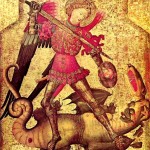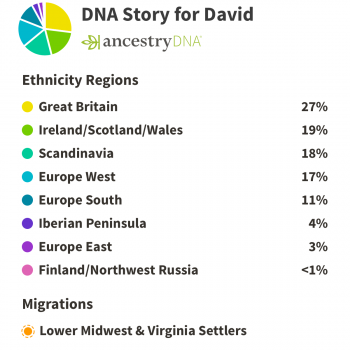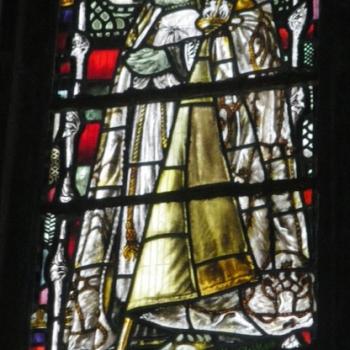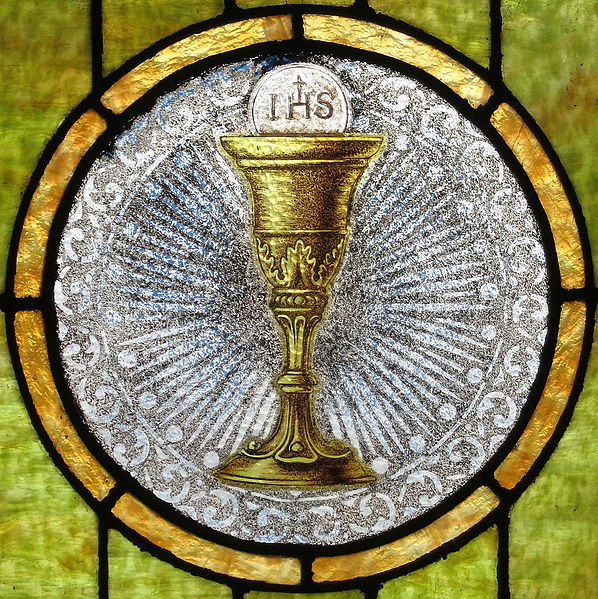David Russell Mosley

Second Week of Advent
St John of the Cross
14 December 2013
On the Edge of Elfland
Beeston, Nottinghamshire
Dear Friends and Family,
Today I want to write to you about a topic that is close to my heart. Throughout the Church’s history two things have been guiding principles for the Church. They have served as sources for Christ’s authority, and have been variously understood through the centuries. They are Scripture and Tradition. Often today in our polarised environment people tend to think of these as distinct from one another. We want to prioritise them, or perhaps to ignore one in favour of another. This, however, is, in my opinion, an inappropriate relationship. We should not be able to simply pick one over the other, but both should be allowed to sing together.
In Evangelical circles, we tend to put all our emphasis on the Scriptures. And of course, why not? After all, most good Evangelicals will tell you they believe the Scriptures to be God’s holy word. They are inspired by the Holy Spirit in a way nothing and no one else is (though even our Charismatic brothers and sisters might blanche at that statement). They are the source of all authority. Within my own Christian tradition of the Restoration Movement, there have been some who believe the Holy Spirit’s primary role as being in interpreting the Scriptures. There is also a tendency to see the New Testament Scriptures as holding the blueprints for how the Church is meant to be run and function. Other traditions affirm a doctrine called Sola Scriptura whereby they understand the Scriptures to hold the only authority for Christians.
Often, Evangelicals tie themselves to historical-critical methods of interpreting the Scriptures, or even a common sense reading of the text. There are many problems with this approach. For starters, it was often the method of many early heretics to read the Scriptures in a common sense method. This is how heresies such as Sabellianism (where God shows himself in three different modes, Father, Son, and Holy Spirit, but is not three persons) or Arianism (where the Son is not God but the first Creature of God). Equally problematical is that the historical-critical method of interpretation (which focuses on cultural, historical contexts and authorial intent as the keys to interpreting the Scriptures) was primarily founded in the nineteenth century by liberal Christians in Germany seeking to dismantle traditional readings of the Bible.
In Catholic circles, on the other hand, more emphasis is often given to the Tradition. This is often understood as both the unwritten tradition of the Apostles passed on through Apostolic succession (through the bishoprics), and the writings and councils of the Church throughout the centuries. Noting the problems a common sense reading of the Scriptures can cause, Tradition puts more authority on interpreters of the Scriptures. This often works out through the creation of Creeds as well as the findings of Ecumenical Councils (councils that involve the whole Church, however that is defined at given point in history). This puts emphasis on the holy men and women who have read and interpreted the Scriptures through the centuries.
The problem with this method is that it can often downplay the role of the Scriptures themselves. A friend of mine recently noted that while his group of Roman Catholic students could articulate at least a creedal understanding of the Trinity, they were unaware that Genesis was a book in the Bible. Too much emphasis on the Tradition can cause a complete ignorance or at least lack of familiarity with the Scriptures. Equally, it can cause Christians to become rather shallow in their faith since the role of interpreting the Scriptures is placed in the hands of others through the Tradition, rather than being encouraged to encounter the Scriptures at an individual and lay level.
I have tried to point out the pitfalls of what a true Sola Scriptura and a Sola Traditione could be. In many ways, I have allowed myself to fall into the Straw Man Fallacy. There are few in either camp (Scripture emphasising or Tradition emphasising) who truly only follow either the Scriptures divorced from the Tradition or the Tradition divorced from the Scriptures. Yet I fear this may happen as we become more and more polarised.
Evangelicals, I want to applaud your knowledge of the Scriptures and thank you for teaching me to encounter the Scriptures on their own terms. However, I want to encourage you to remember that we do not read or interpret in a vacuum, nor within the confines of our tradition alone. After all, the canon itself is a product of Tradition. We must read the Church Fathers and Mothers, medieval theologians, monks, and nuns, and those who helped found our own individual traditions.
Catholics, I want to applaud your belief in the power of the Spirit to work in history, in councils, and in the men and women of the Church who have read and interpreted the Scriptures over the years. You have given me a deeper way to read the Scriptures and encounter God. However, we must also remember that we must read the Scriptures and encounter them at the individual as well as corporate level. We must be willing to disagree with the great and holy men and woman who have come before us. We must, above all else, remember that the Scriptures are often the foundation for the Tradition, that the men and women who have come before us were so steeped in the Scriptures that their own words were dripping with citations and allusions.
What do you think? Am I over simplifying? Perhaps a little, but I hope I have shown the importance of being a Catholic Evangelical as it regards the Scriptures and the Tradition. Let me know what you think in the comments below.
Sincerely yours,
David Russell Mosley
Related articles
- Being a (Non-Roman) Catholic Evangelical: The Church Calendar (elflandletters.wordpress.com)











